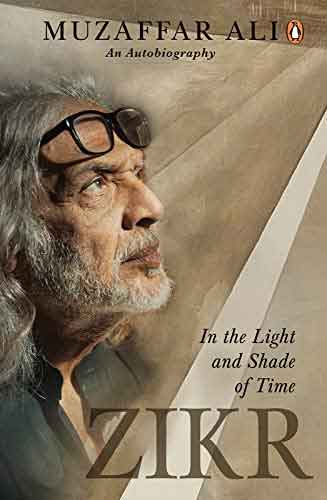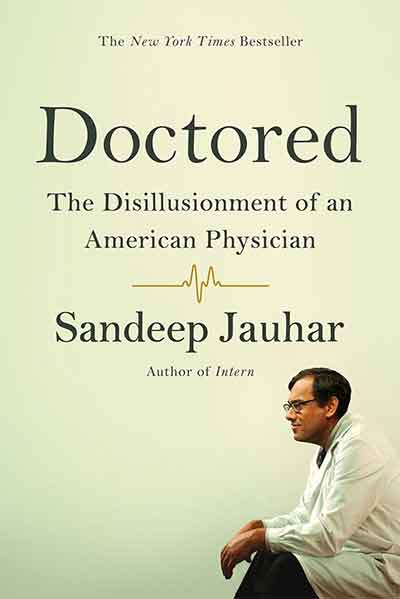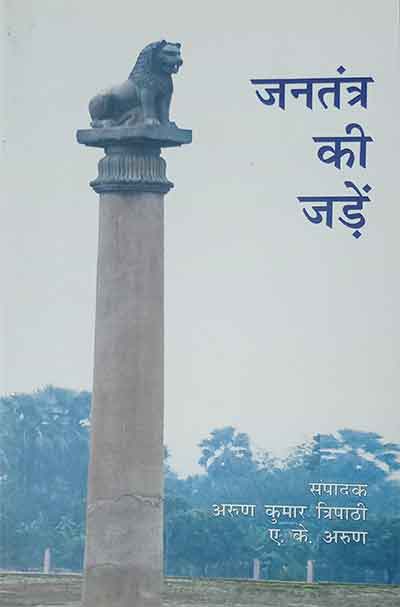Zikr: In the Light and Shade of Time (2022). Muzaffar Ali. Penguin Random House India Vintage. New Delhi.
Zikr, meaning remembrance, comes out as a finely textured autobiographical narrative of one of the most famous creative minds of our times. The world knows Muzaffar Ali as a film-maker and an artist. He is an equally accomplished painter, fashion designer, music composer and social worker. Reading his autobiography made me realise that he is a Sufi mystic as well. From page one, one could smell the fragrance of Sufism informing his autobiographical sketch. Till now, I had no idea that Muzaffar Ali is such a polished writer. His writing style in this book is mature and captivates the soul till the last page. To write about one’s life is challenging for it involves sharing your most intimate details of life with an ocean of unknown people. Zikr reads like a poetry.
The book runs into around 250 pages and has 17 chapters. One can sense that the book has four major themes running through those 17 chapters. The first few chapters are on Muzaffar Ali’s childhood and early adulthood, then we have detailed discussion on his films, next we see his growth as painter, designer and composer and finally, his evolution as a Sufi polyglot.
 As a child and young adult, he idealised his father. His father Raja Syed Sajid Husain was an Edinburgh educated taluqdar (big landlord) and had love for cars and stylish dresses. His elite education opened his eyes to the vagaries of colonial economy. Raja saheb stopped wearing his Western attires and donned khadi to support nationalisation of mills in favour of the poor. Raja Sajid Husain was staunchly in favour of pluralism and fought elections in British India as a Congress candidate. Young Muzaffar Ali was nurtured in such environment where man is considered as man, above all. What started as a fascination with attires and taluqdari lifestyle for the father, Sajid Husain, soon evolved into a sensibility for the poor and the downtrodden for the son, Muzaffar Ali. Like father, like son.
As a child and young adult, he idealised his father. His father Raja Syed Sajid Husain was an Edinburgh educated taluqdar (big landlord) and had love for cars and stylish dresses. His elite education opened his eyes to the vagaries of colonial economy. Raja saheb stopped wearing his Western attires and donned khadi to support nationalisation of mills in favour of the poor. Raja Sajid Husain was staunchly in favour of pluralism and fought elections in British India as a Congress candidate. Young Muzaffar Ali was nurtured in such environment where man is considered as man, above all. What started as a fascination with attires and taluqdari lifestyle for the father, Sajid Husain, soon evolved into a sensibility for the poor and the downtrodden for the son, Muzaffar Ali. Like father, like son.
It is because of that sensibility that Muzaffar Ali started making films. All his films talk about the most intimate form of human emotion– pain. For Ali, pain is universal as it is felt across the cultures. It requires no language to express; it is felt by heart. It is only when we see the pain of others as our own pain that we evolve as a human being. It is here that we see Ali’s creative mind is striking the chord with the lives of men and women, Hindus and Muslims, Shias and Sunnis, and even Dalits and Sikhs. ‘Anyone who seeks, finds’.
His first film ‘Gaman’ was on a taxi driver who migrated from the erstwhile Awadh region to Bombay in search for livelihood. Poverty involves not merely turbulence in the life of the unemployed youth but also his family. Ghulam Hasan, the main character played by Farooq Sheikh, yearns for the company of his newlywed wife and his ailing mother. Gaman is decidated to Ali’s mother Rani Kaniz Hyder. His next film, ‘Umrao Jaan’, an extremely popular film, made Muzaffar Ali a household name. Here he took the tribulations of a young girl as his key theme and depicts the life and times of colonial Awadh. This film catapulted Rekha as one of the most gracious actresses of Bollywood. The third film was ‘Aagaman’ and it took the question of the exploitation of peasants at the hands of sugar mill owners. Sugar-cane is the main cash crop of north Uttar Pradesh where Muzaffar Ali’s estate Kotwara is located. He was greatly troubled seeing the everyday struggles of the peasants and felt to share with the world their ordeal. His last film, ‘Anjuman’ talks about the precarious condition of chikan workers in the old city of Lucknow. The protagonist, played by Shabana Azmi, is a woman of grit, and despite facing odds from her family, stands up to the rights of workers against rich traders and their henchmen. The issues raised in all the four films around poverty, injustice, inequality, misogyny and communal violence are still relevant. This is what makes Muzaffar Ali timeless. He is a man who flows across the past, present and future seamlessly. His place is placeless, his trace is traceless.
Women across societies are marginalised in various ways. It requires a sensitive heart to empathise with them and give their plight an artistic form. Two of his films– Umrao Jaan and Anjuman– took this theme of narrating human experiences through the struggle of women as the key to understand cultures and social systems. However, there is something which is still hidden from public eyes; something which is accessible to Muzaffar Ali exclusively. It is his last film Zooni which is unreleased and had Dimple Kapadia and Vinod Khanna in lead roles. It is the story of a Kashmiri poetess named Habba Khatoon, and Ali wanted to show the scenic beauty of Kashmir though the tribulations of Habba Khatoon. Only time can tell when this film would see the light of the day.
With time and a series of ups and downs, Muzaffar Ali kept on drawing closer to the world of Sufi mysticism. His love for Urdu poetry led him to explore human experiences in its multiple forms. Paintings succeed where words fail. Heart succeeds where mind fails. This realisation led Ali to accept, understand, experience and promote Sufi philosophy. Today, his paintings and musical compositions are fully immersed in Sufi aesthetics. Love for the Divine is actually compassion for fellow human beings. This sensibility informs all the shades of Muzaffar Ali’s persona. No matter what he creates, the aroma of Rumi, Khusrao and Chishti is there to purify our soul and bring solace. This ability to work seamlessly across registers of reciting Urdu poetry, making films, designing fabrics, driving vintage cars, living Sufi philosophy, painting abstract art, composing music, creating employment for embroidery workers, and above all living mindfully makes Muzaffar Ali Muzaffar Ali. He will remain eternal in the light and shade of time. Whenever the history of a Sufi prince will be written, there will be the zikr of Muzaffar Ali. This autobiographical book is a timeless work of art and a limitless work of inspiration that will be torching the path of seekers of the Divine, generations after generations.
Muzzafar tere sukhan pe hai, lutf e sukhan tamam
Zeeshan Husain,MSW (TISS), MPhil (CSSSC), UGC NET (Social Work), UGC NET (Sociology), New Delhi

















































